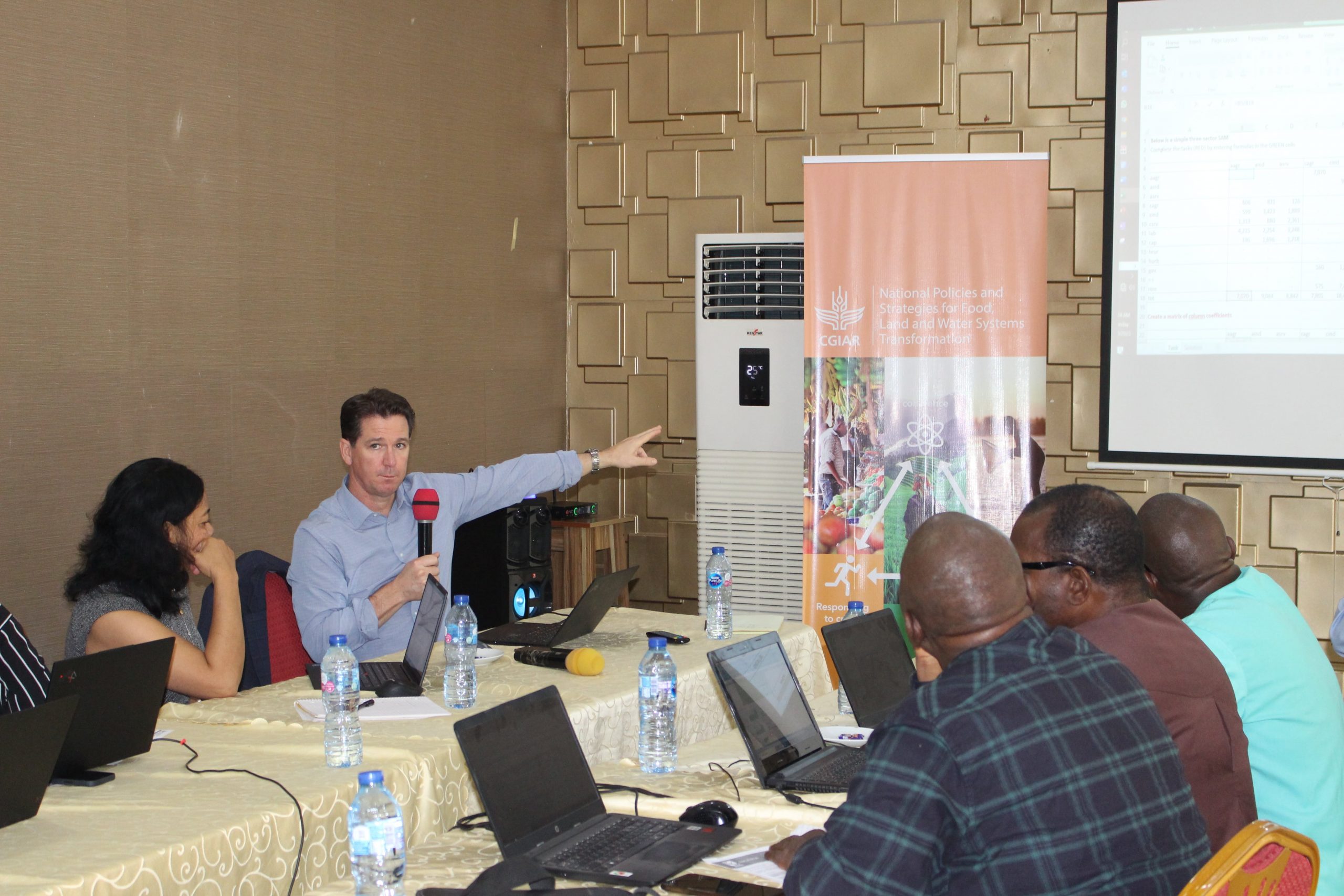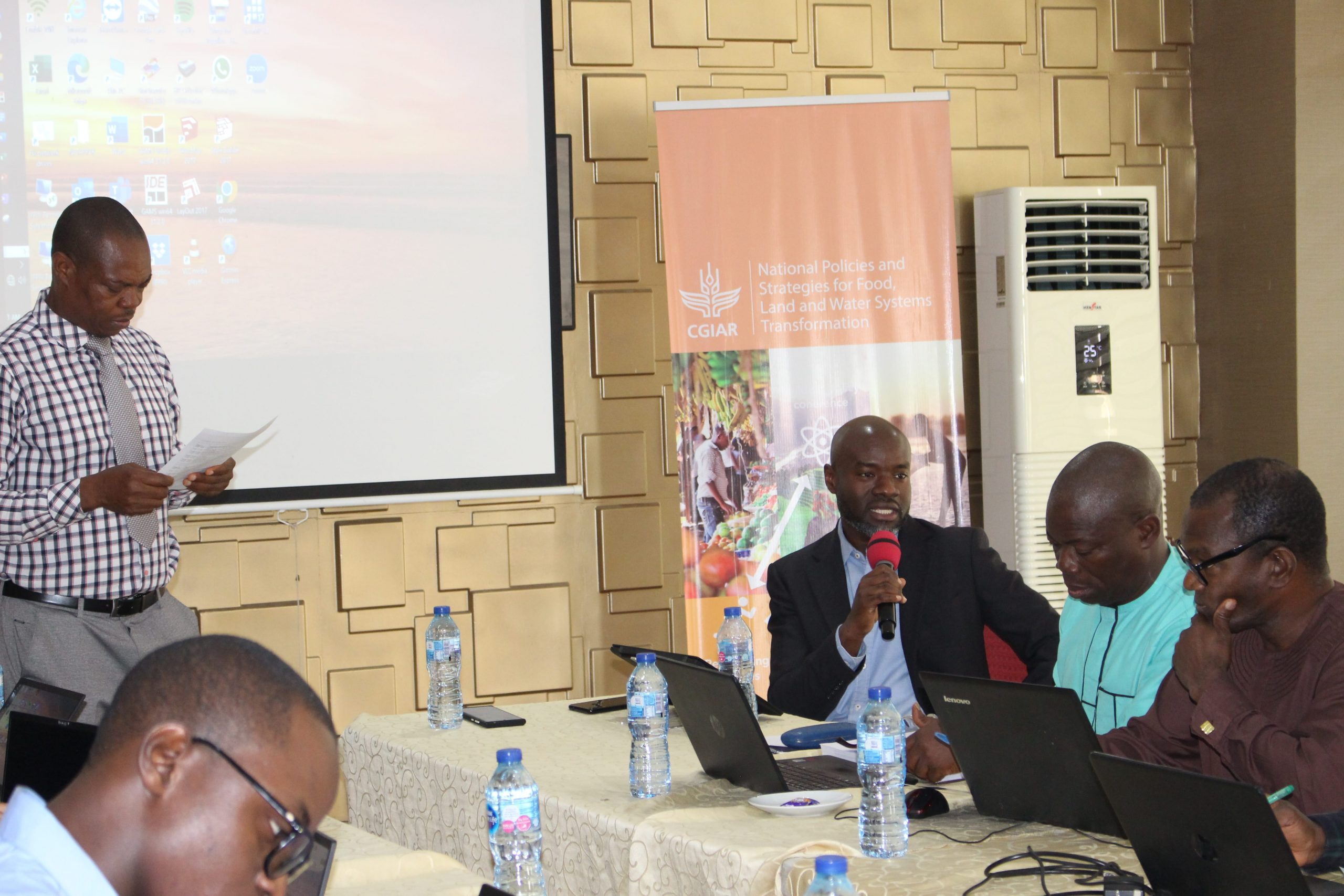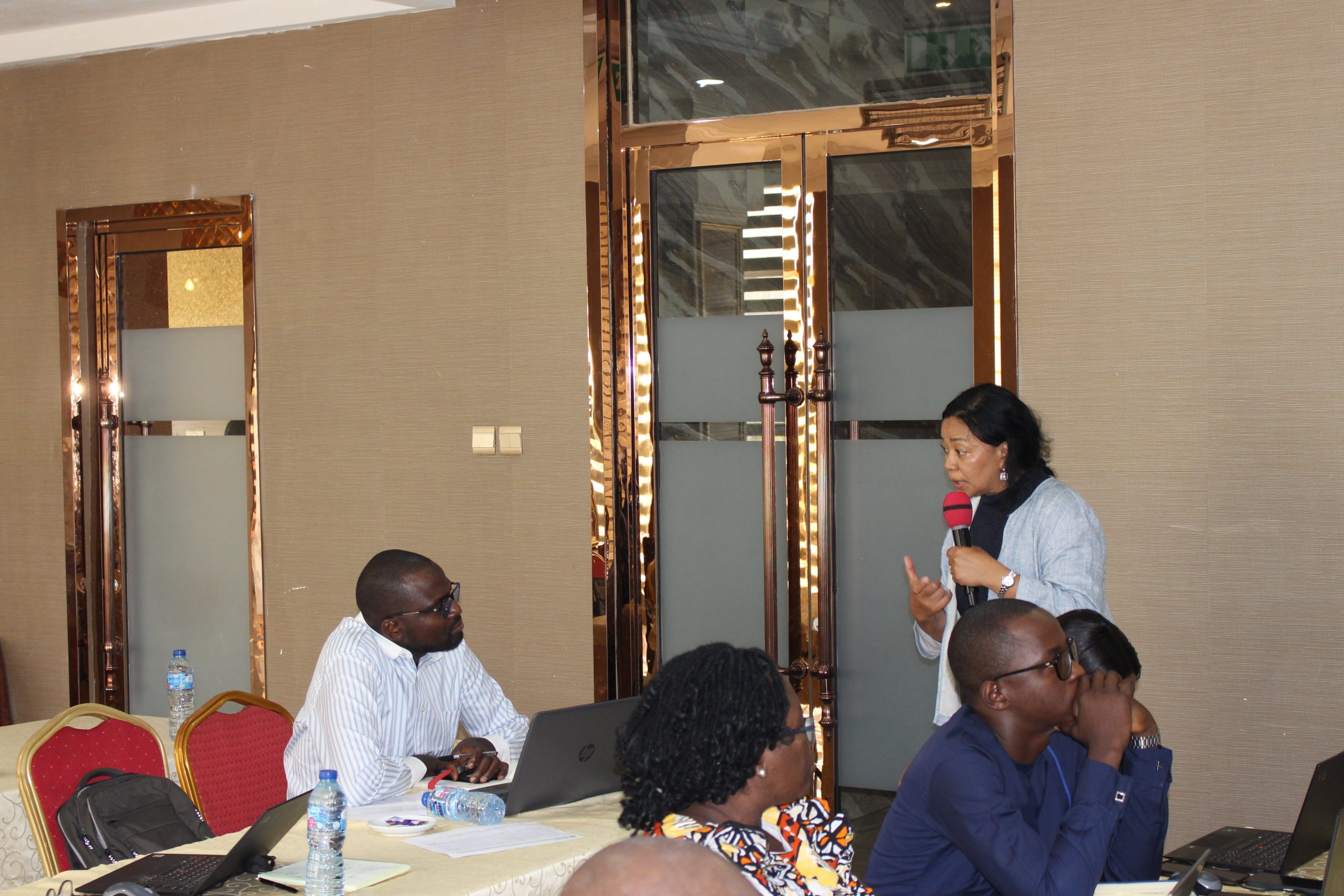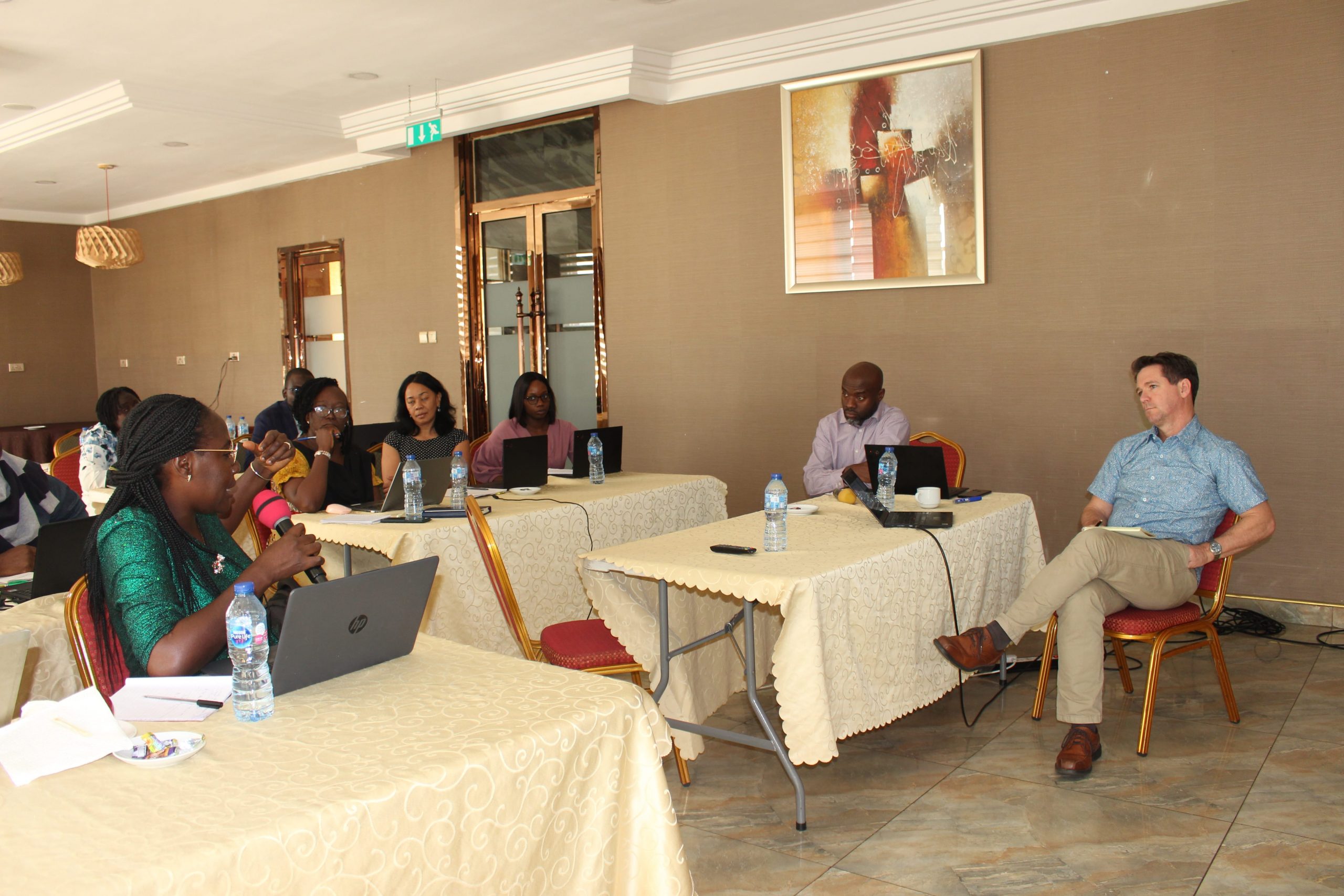
Photo credit: Omobolanle Onilogbo/IFPRI
Following the previous CGIAR National Policies and Strategies for Food, Land and Water Systems Transformation (NPS) Initiative[1] capacity workshops in July and September 2022, The International Food Policy Research Institute (IFPRI) held its third training workshop with the Nigerian Institute of Social and Economic Research (NISER) and the National Bureau of Statistics (NBS) on “Building a Nigerian Social Accounting Matrix (SAM)”, from 30th January to 2nd February 2023.
This is the final phase of the capacity-sharing series before stakeholders put the learning into practice and collaboratively pull data towards building a Nigeria SAM dedicated to helping improve policy optimization and support decision-making. The training had 16 participants from the IFPRI offices in Abuja and Washington DC, NBS and NISER. Karl Pauw, NPS Food System Economywide Modeler and Senior Research Fellow at IFPRI in Washington, DC, and Josee Randriamamonjy, NPS Data Development Manager and Senior Scientist/Research Fellow at IFPRI in Washington, DC, led the training sessions. Kwaw Andam, Nigeria NPS Lead and Country Program Leader of IFPRI Nigeria, and Hyacinth Edeh, NPS Nigeria Coordinator of Advocacy and Stakeholder Engagement and Country Program Manager at IFPRI Nigeria, facilitated the training session.
Karl Pauw (Left) and Kwaw Andam (Right) presenting during the NPS Building Nigeria SAM Training
Photo credit: Onilogbo Omobolanle/IFPRI
The 4-day training started off with a welcome address from Kwaw Andam and introductions. Karl led the first session, giving a brief recap on SAM, economywide modelling, introduction to SAM multipliers and other related topics from the previous trainings. Josee led a practical session in which participants had the opportunity to carry out SAM exercises and find solutions to various tasks.

Photo Credit: Onilogbo Omobolanle/IFPRI
On day two, Josee recapped the use of Supply and Use Tables (SUTs) in the SAM. The trainees went through a practical session on incorporating SUT data into the Nexus SAM toolkit and updating and cleaning agricultural, trade, and domestic absorption data. The SUT will provide the key accounting mechanism to ensure coherence between the various sources of data and approaches countries use to estimate gross domestic product (GDP) – expenditure, output and income. This will help stakeholders to be informed on a wide range of policy areas.
Participants continued practical sessions on the components of building a SAM on day three. They started the day by learning about household expenditure & labor force survey data, followed by incorporating labor and household accounts in the SAM. After carrying out a few exercises, participants discussed data needs and data available for regionalizing the SAM in Nigeria. On the last day of the training, Josee, Karl and Kwaw facilitated a group discussion session on public expenditure data & analysis with the participants. NISER and NBS colleagues used the session to identify areas of collaboration to collect data to build the Nigeria SAM. Participants from NISER suggested disaggregation by ecological zones to identify common commodities in the states and visiting the selected states to identify gaps that could not be filled with data from existing sources. NBS will release an updated SUT in August 2023.
Discussion session during the NPS Building Nigeria SAM Training
Photo credit: Onilogbo Omobolanle/IFPRI
Click here to read about the previous training.
Click here to read about the NPS Launch in Nigeria
[1] This work is part of the CGIAR Research Initiatives on National Policies and Strategies (NPS). CGIAR launched NPS with national and international partners to build policy coherence, respond to policy demands and crises, and integrate policy tools at national and subnational levels in six countries in Africa, Asia, and Latin America. CGIAR centers participating in NPS are The Alliance of Bioversity International and the International Center for Tropical Agriculture (Alliance Bioversity-CIAT), International Food Policy Research Institute (IFPRI), International Livestock Research Institute (ILRI), International Water Management Institute (IWMI), International Potato Center (CIP), International Institute of Tropical Agriculture (IITA), and WorldFish. We would like to thank all funders who supported this research through their contributions to the CGIAR Trust Fund.
.





